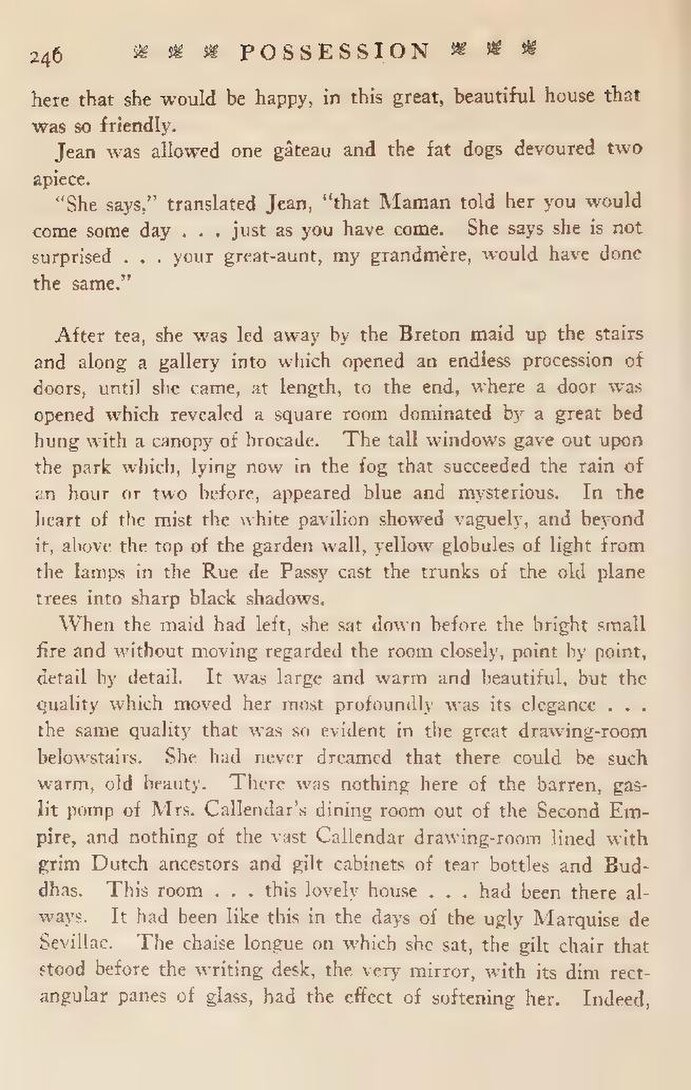here that she would be happy, in this great, beautiful house that was so friendly.
Jean was allowed one gâteau and the fat dogs devoured two apiece.
"She says," translated Jean, "that Maman told her you would come some day . . . just as you have come. She says she is not surprised . . . your great-aunt, my grandmère, would have done the same."
After tea, she was led away by the Breton maid up the stairs and along a gallery into which opened an endless procession of doors, until she came, at length, to the end, where a door was opened which revealed a square room dominated by a great bed hung with a canopy of brocade. The tall windows gave out upon the park which, lying now in the fog that succeeded the rain of an hour or two before, appeared blue and mysterious. In the heart of the mist the white pavilion showed vaguely, and beyond it, above the top of the garden wall, yellow globules of light from the lamps in the Rue de Passy cast the trunks of the old plane trees into sharp black shadows.
When the maid had left, she sat down before the bright small fire and without moving regarded the room closely, point by point, detail by detail. It was large and warm and beautiful, but the quality which moved her most profoundly was its elegance . . . the same quality that was so evident in the great drawing-room belowstairs. She had never dreamed that there could be such warm, old beauty. There was nothing here of the barren, gas-lit pomp of Mrs. Callendar's dining room out of the Second Empire, and nothing of the vast Callendar drawing-room lined with grim Dutch ancestors and gilt cabinets of tear bottles and Buddhas. This room . . . this lovely house . . . had been there always. It had been like this in the days of the ugly Marquise de Sevillac. The chaise longue on which she sat, the gilt chair that stood before the writing desk, the very mirror, with its dim rectangular panes of glass, had the effect of softening her. Indeed,
